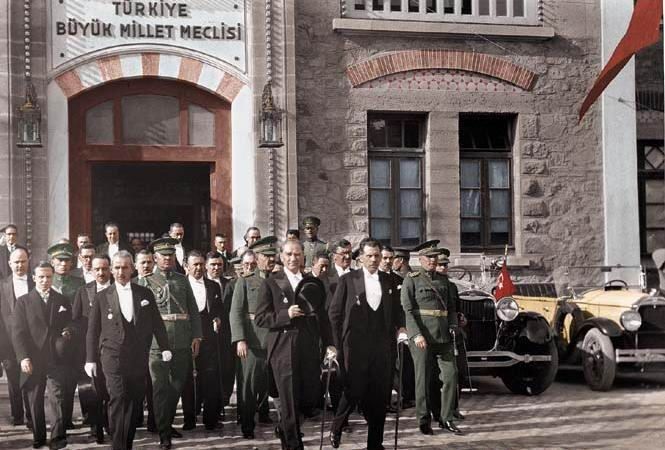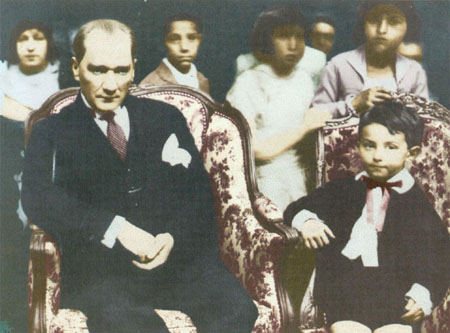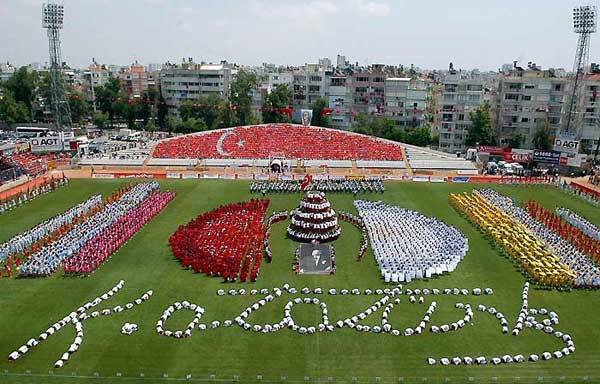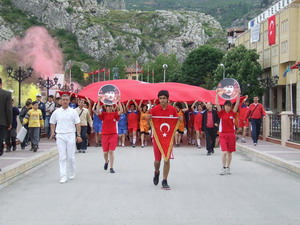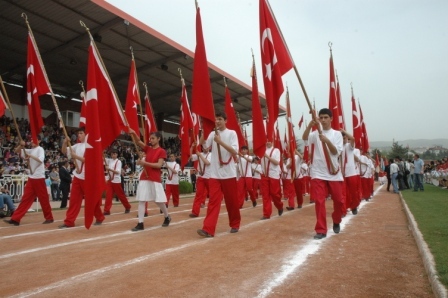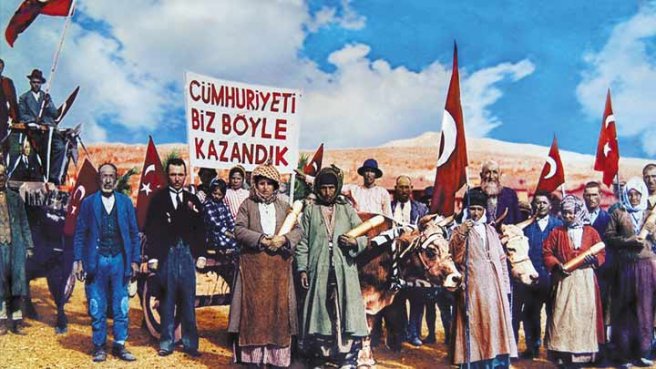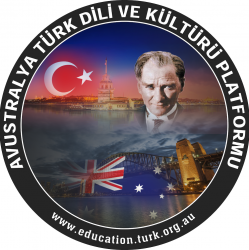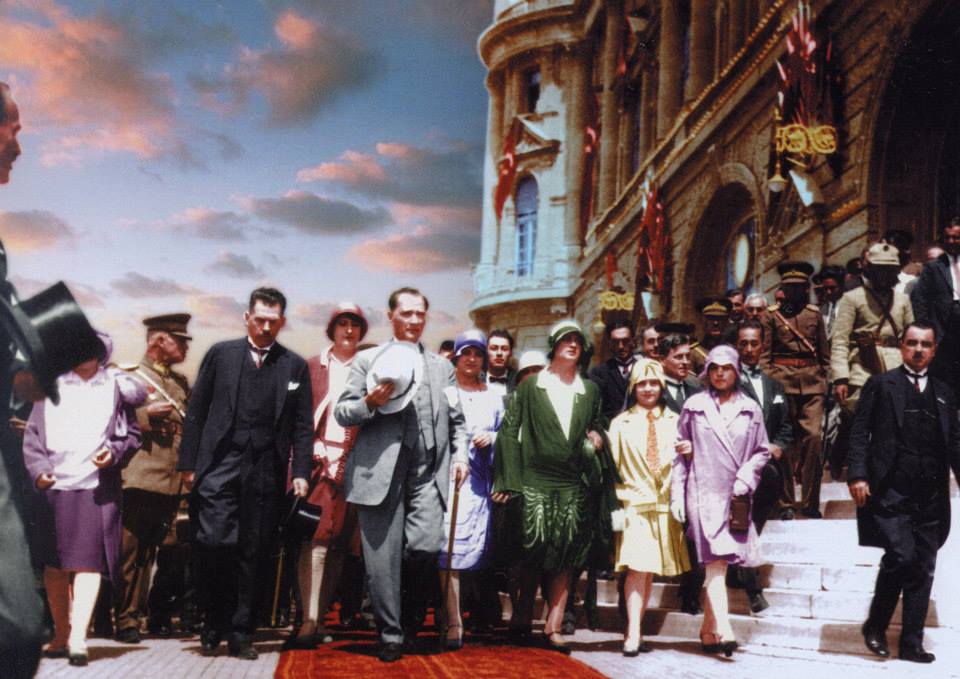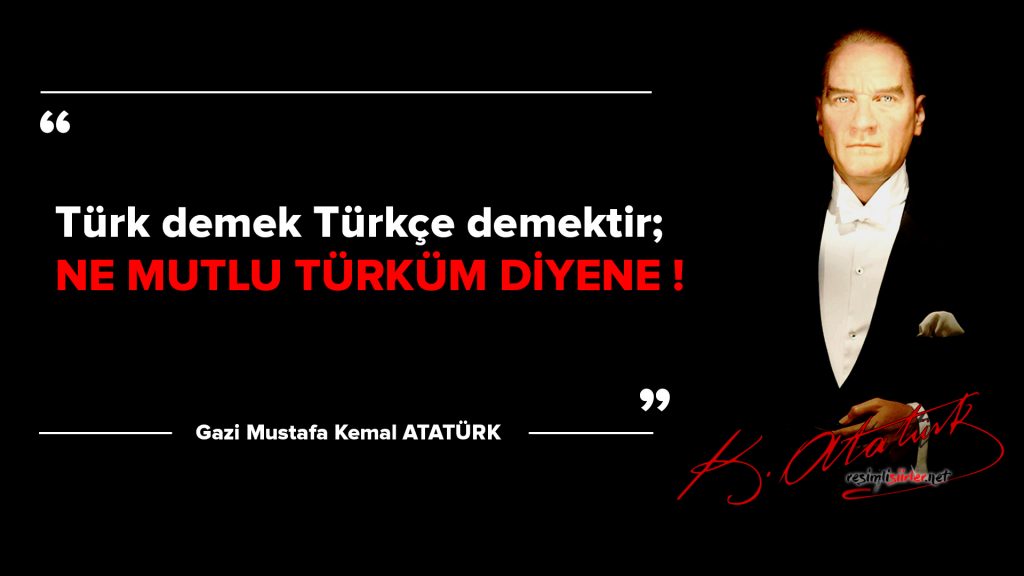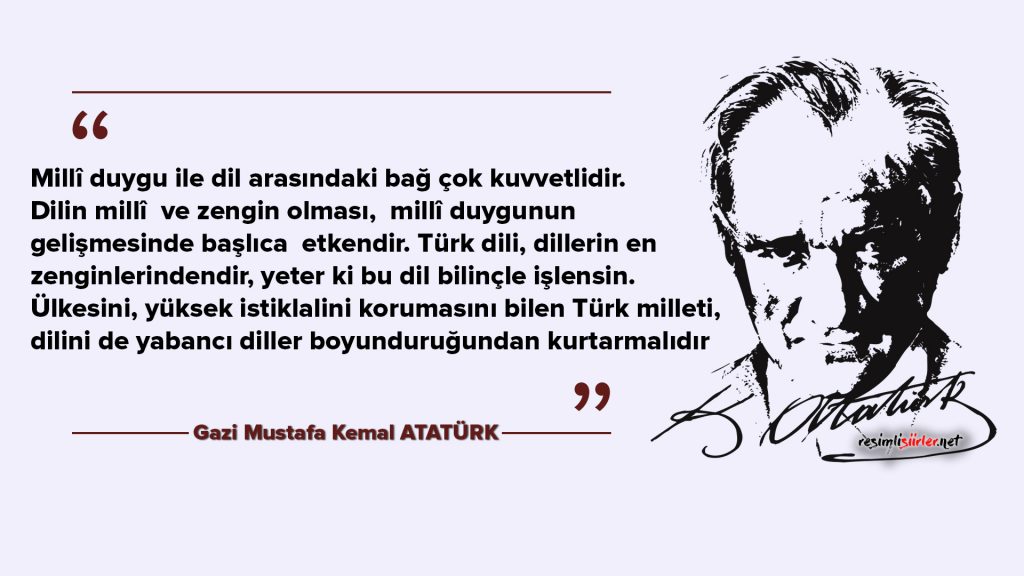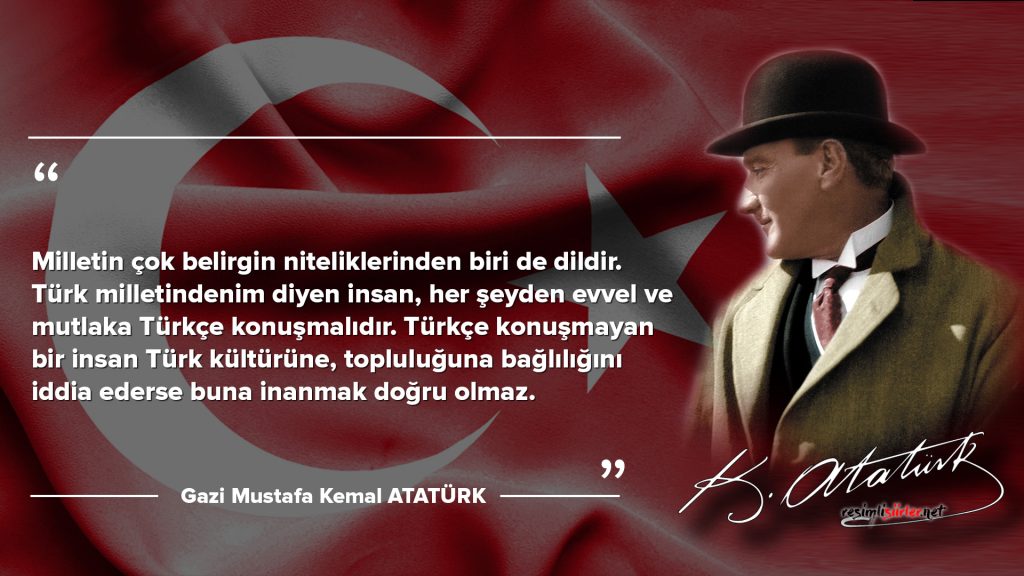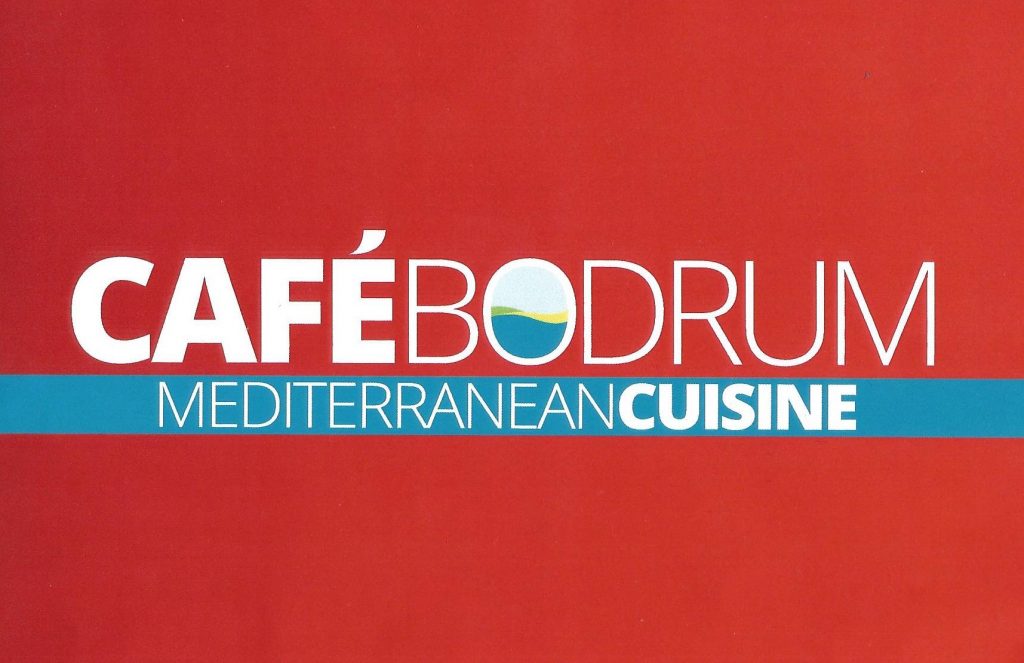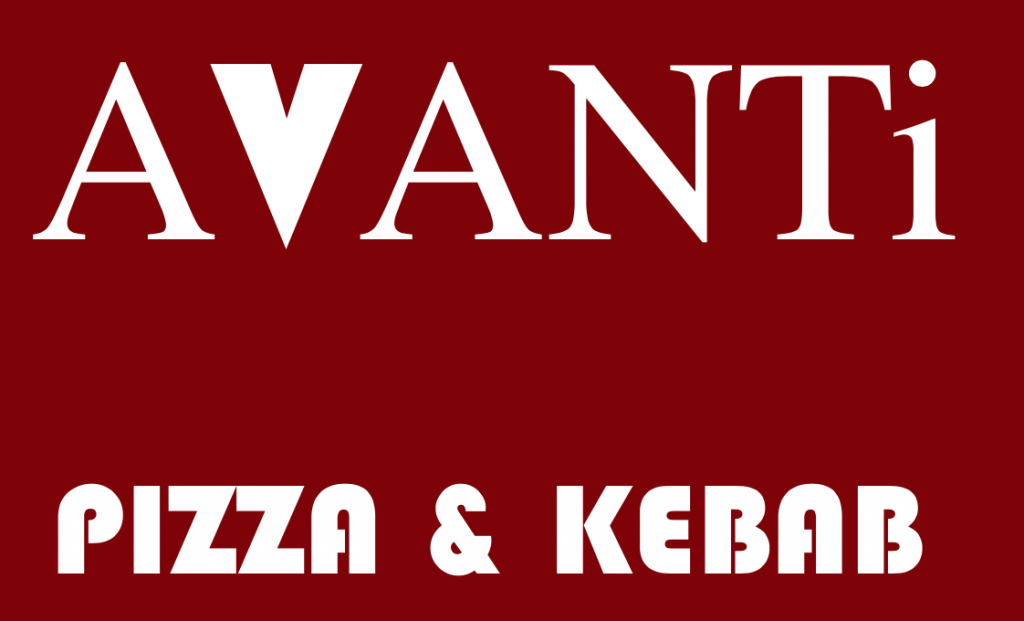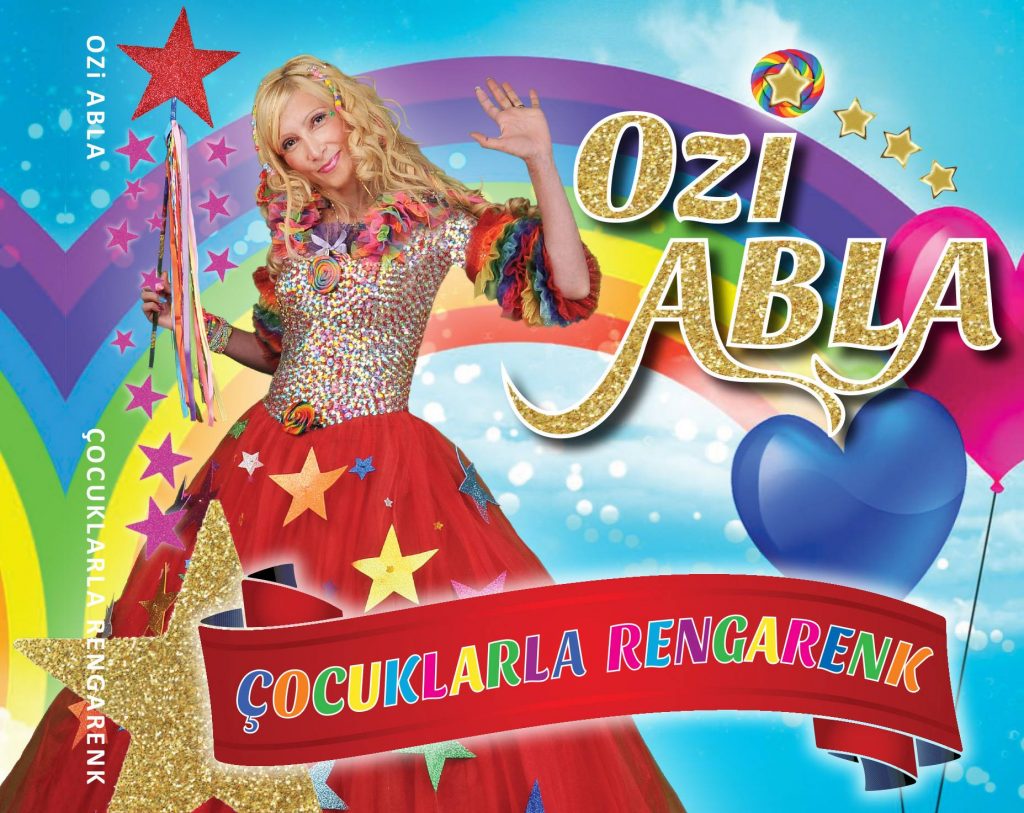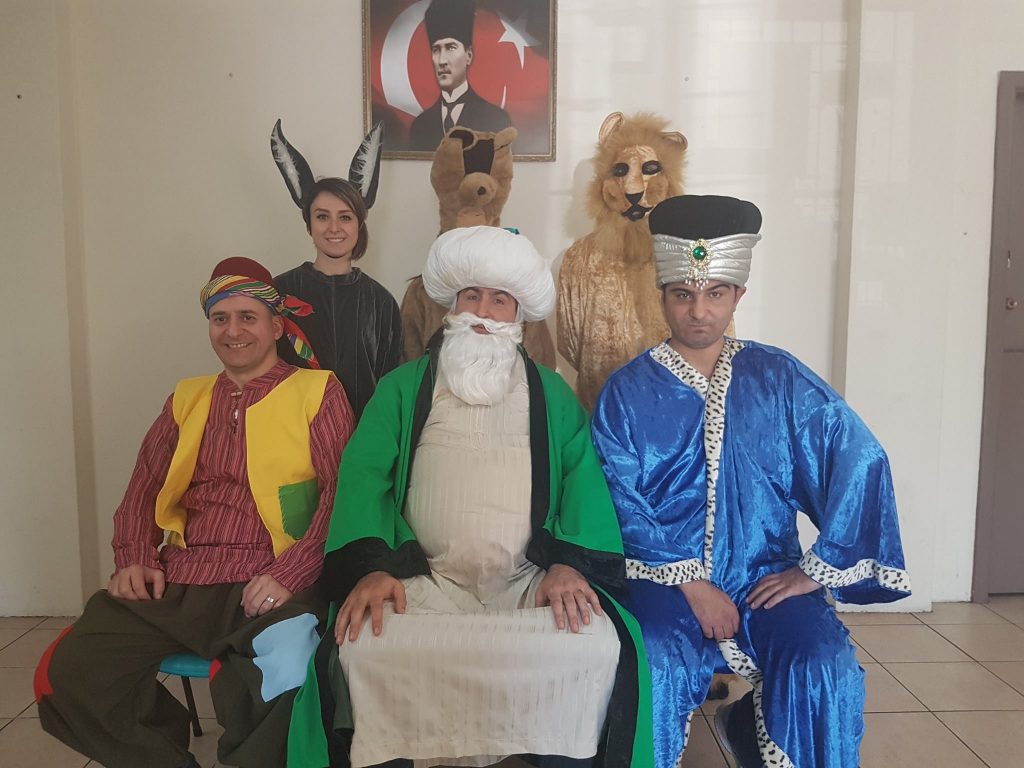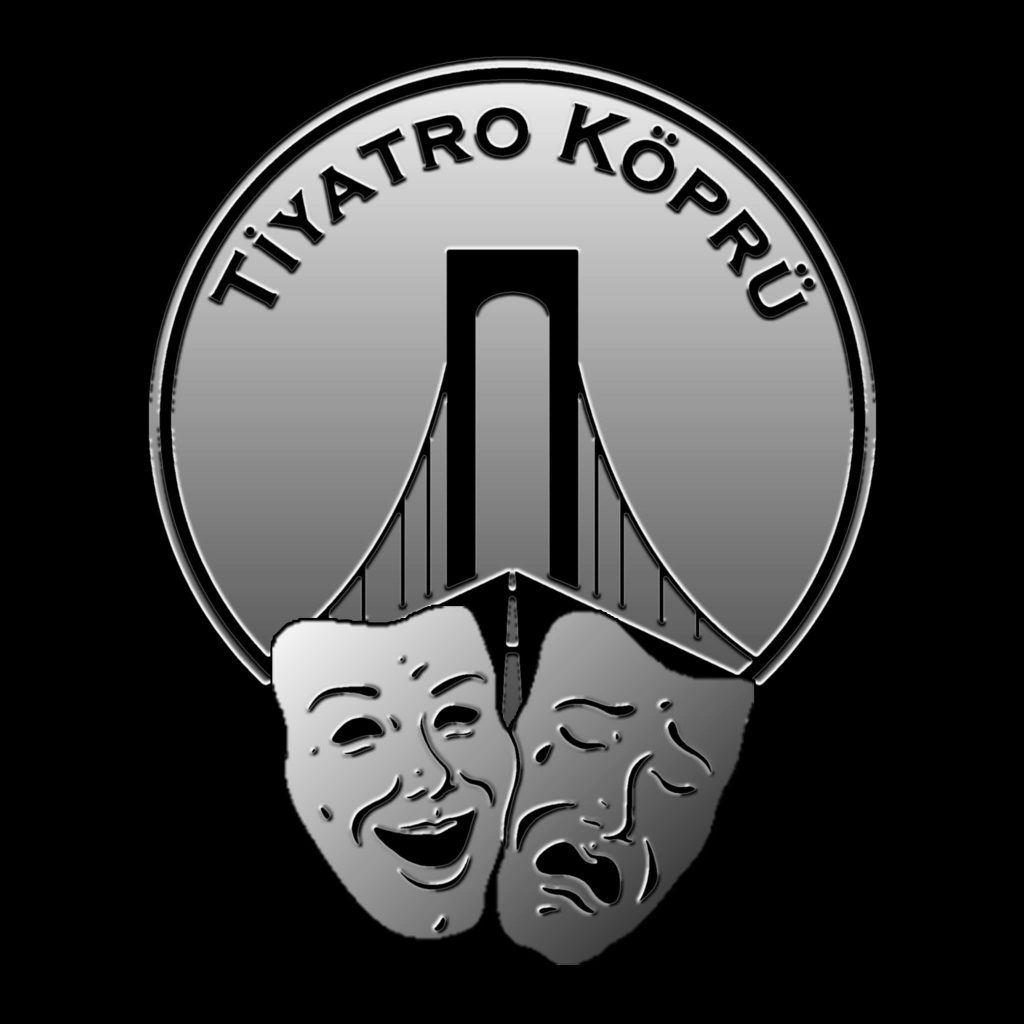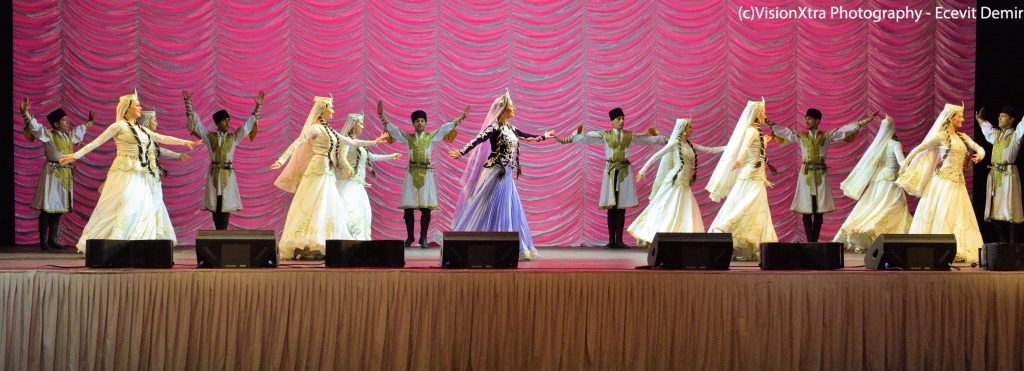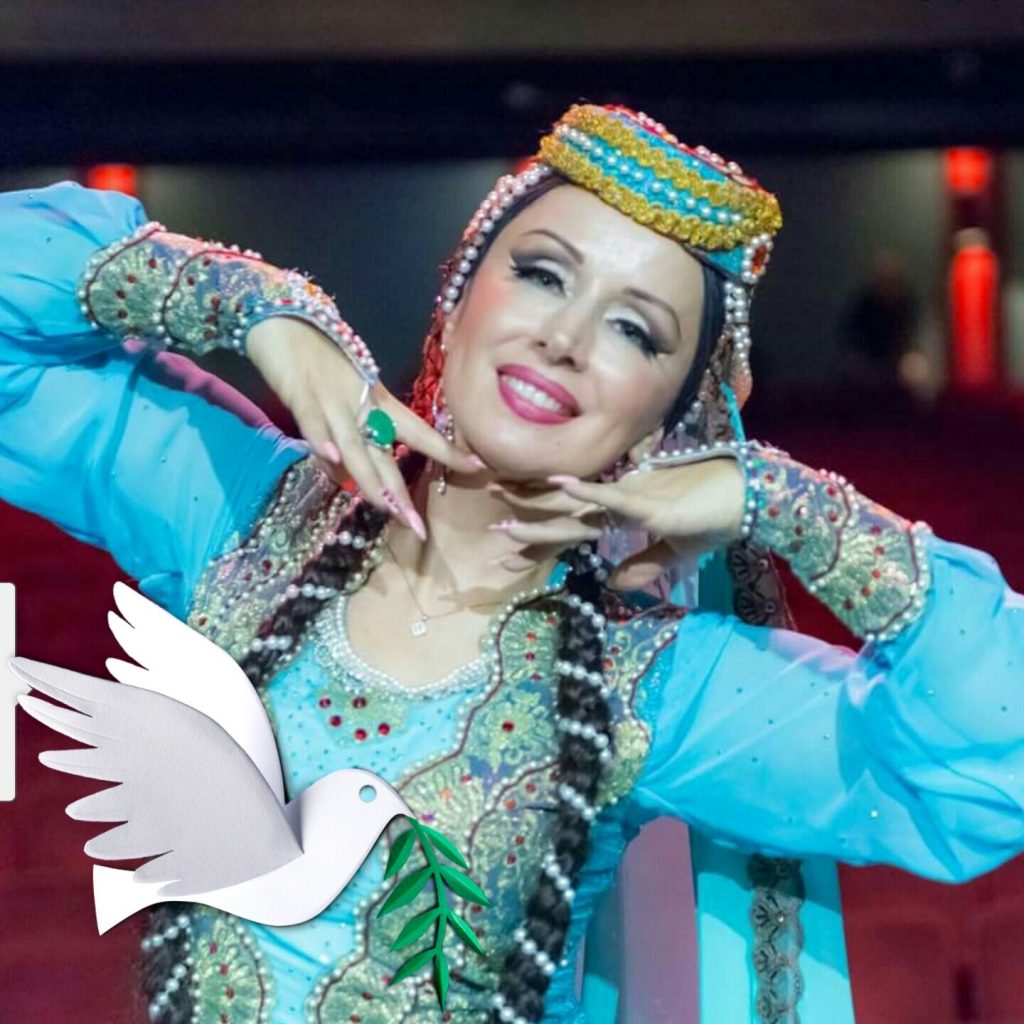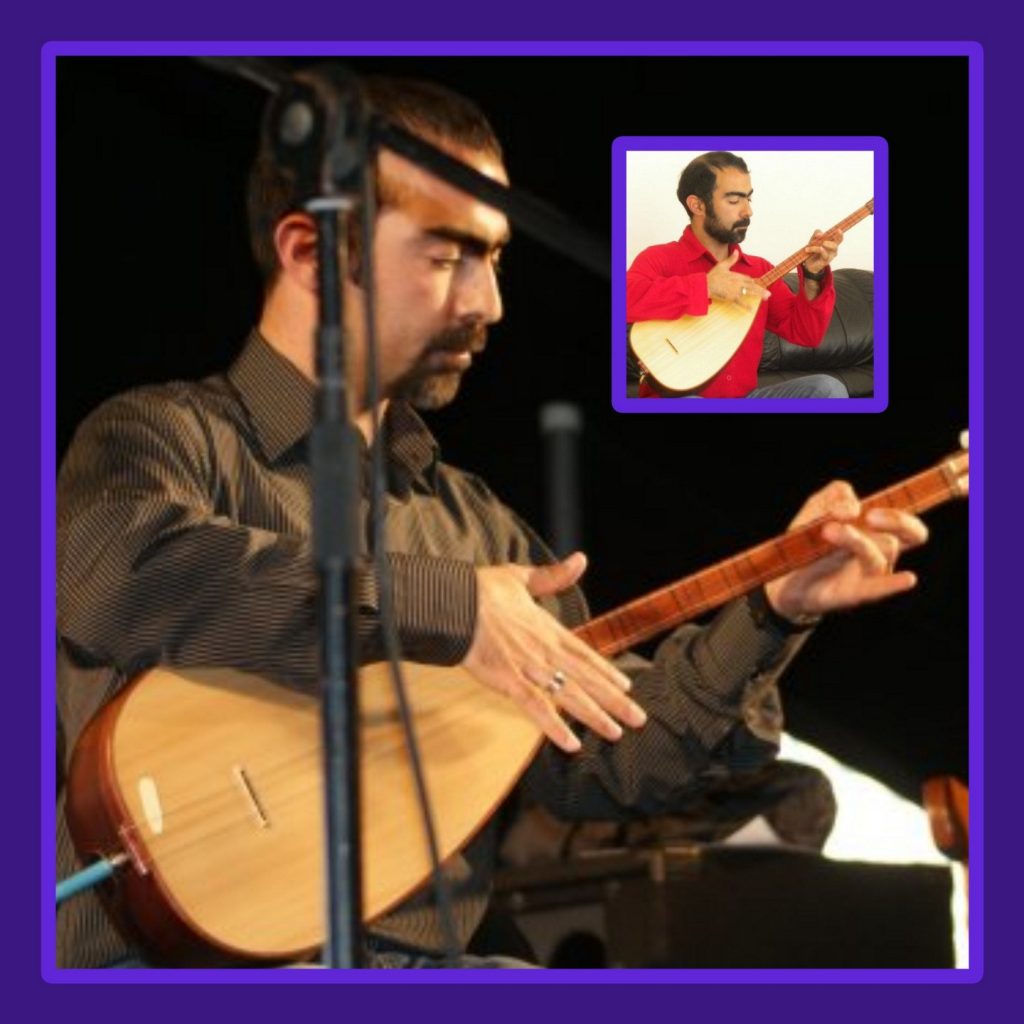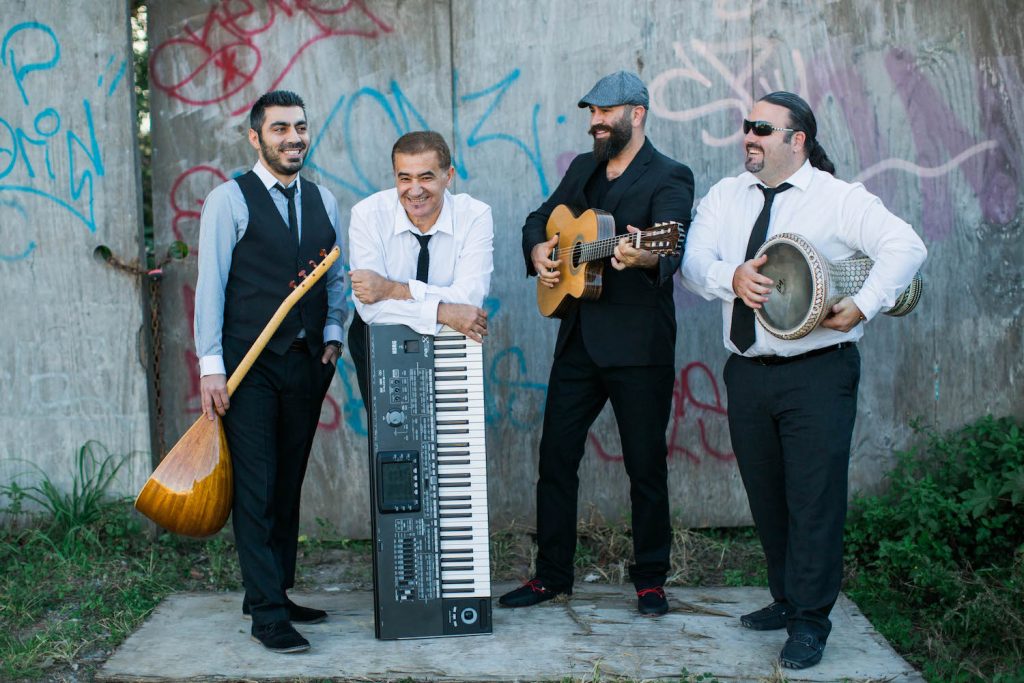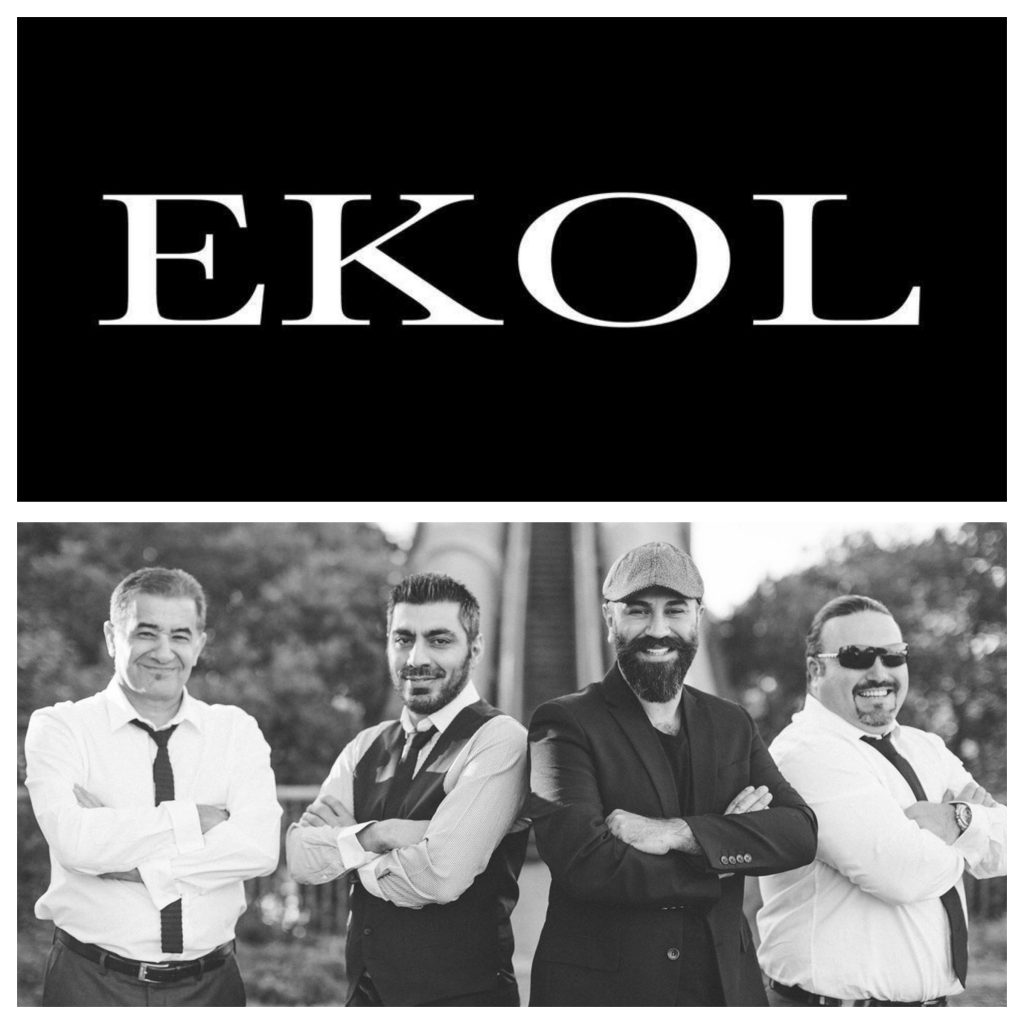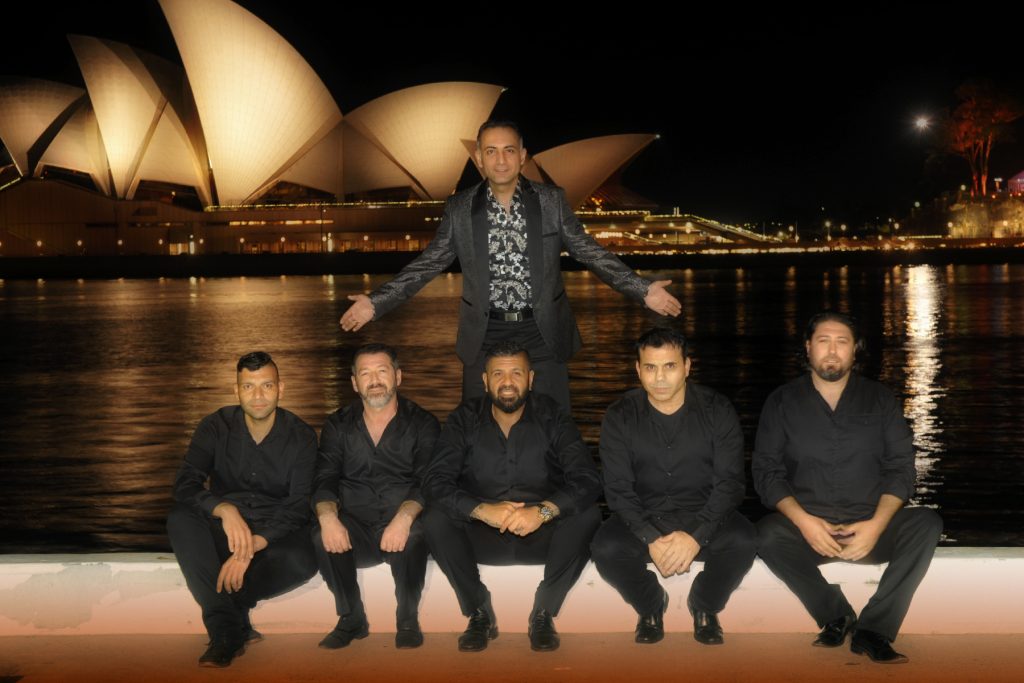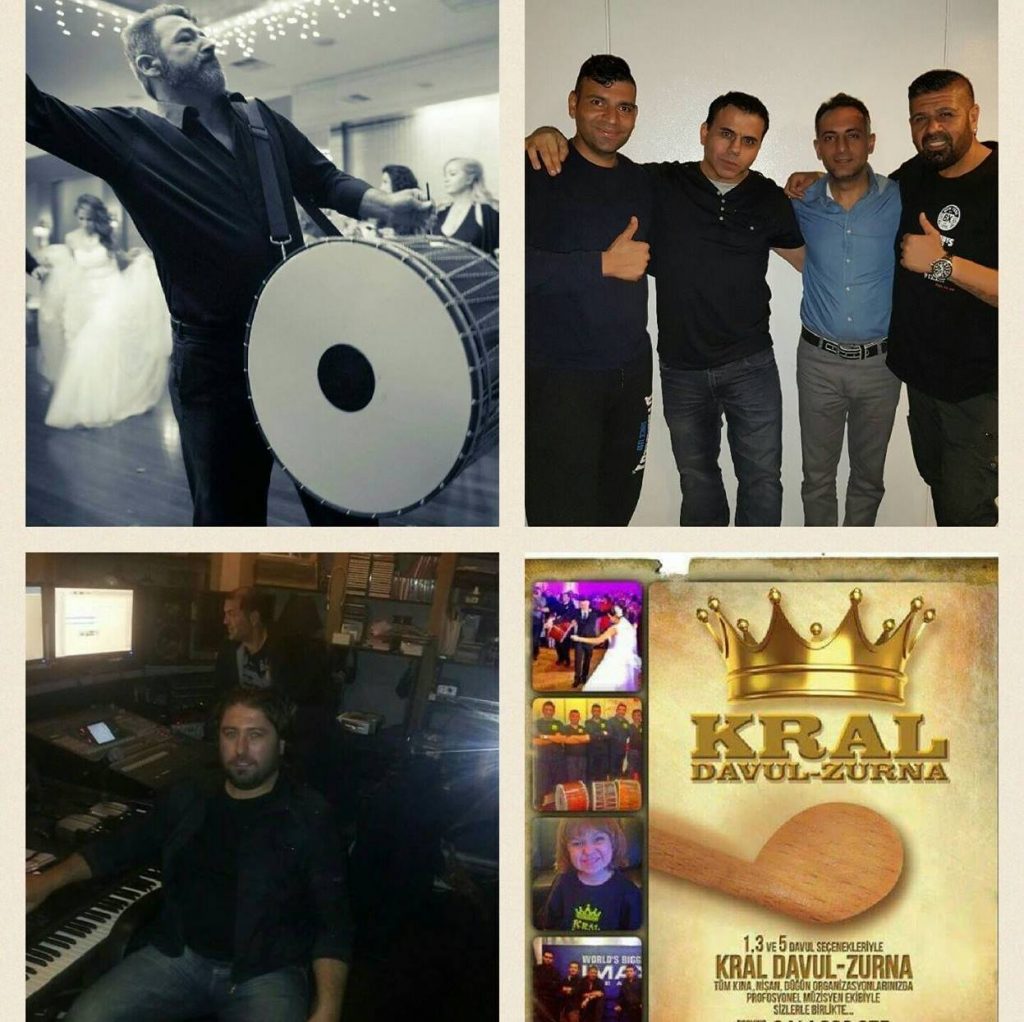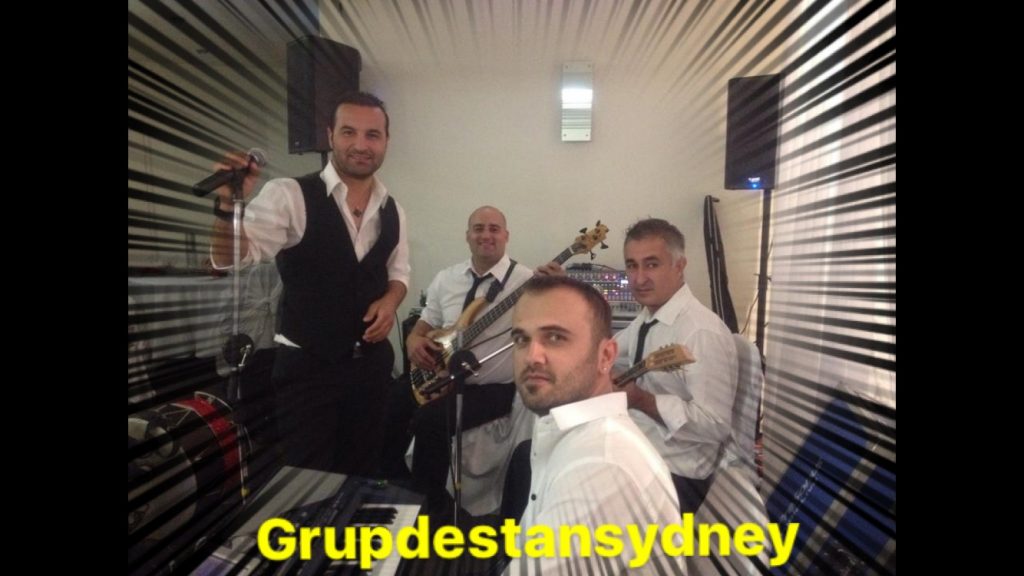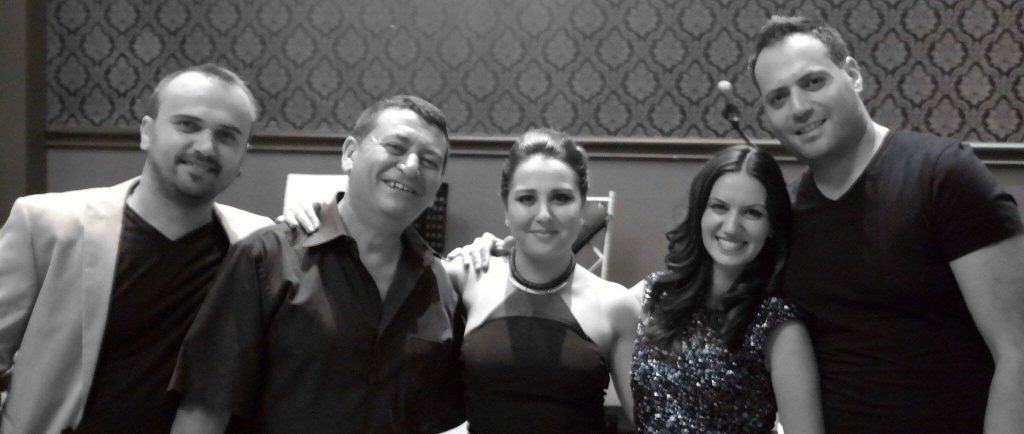İSTİKLAL MARŞI
Turkish National Anthem – Independence Hymn (English)

TÜRKİYE CUMHURİYETİ İSTİKLAL MARŞI
Korkma, sönmez bu şafaklarda yüzen al sancak;
Sönmeden yurdumun üstünde tüten en son ocak.
O benim milletimin yıldızıdır, parlayacak;
O benimdir, o benim milletimindir ancak.
Çatma, kurban olayım, çehreni ey nazlı hilal!
Kahraman ırkıma bir gül! Ne bu şiddet, bu celal?
Sana olmaz dökülen kanlarımız sonra helal…
Hakkıdır, hakk’a tapan, milletimin istiklal!
Ben ezelden beridir hür yaşadım, hür yaşarım.
Hangi çılgın bana zincir vuracakmış? Şaşarım!
Kükremiş sel gibiyim, bendimi çiğner, aşarım.
Yırtarım dağları, enginlere sığmam, taşarım.
Garbın afakını sarmışsa çelik zırhlı duvar,
Benim iman dolu göğsüm gibi serhaddim var.
Ulusun, korkma! Nasıl böyle bir imanı boğar,
‘Medeniyet!’ dediğin tek dişi kalmış canavar?
Arkadaş! Yurduma alçakları uğratma, sakın.
Siper et gövdeni, dursun bu hayasızca akın.
Doğacaktır sana va’dettiği günler hakk’ın…
Kim bilir, belki yarın, belki yarından da yakın.
Bastığın yerleri ‘toprak!’ diyerek geçme, tanı:
Düşün altında binlerce kefensiz yatanı.
Sen şehit oğlusun, incitme, yazıktır, atanı:
Verme, dünyaları alsan da, bu cennet vatanı.
Kim bu cennet vatanın uğruna olmaz ki feda?
Şuheda fışkıracak toprağı sıksan, şuheda!
Canı, cananı, bütün varımı alsın da hüda,
Etmesin tek vatanımdan beni dünyada cüda.
Ruhumun senden, ilahi, şudur ancak emeli:
Değmesin mabedimin göğsüne namahrem eli.
Bu ezanlar-ki şahadetleri dinin temeli,
Ebedi yurdumun üstünde benim inlemeli.
O zaman vecd ile bin secde eder -varsa- taşım,
Her cerihamdan, ilahi, boşanıp kanlı yaşım,
Fışkırır ruh-i mücerred gibi yerden na’şım;
O zaman yükselerek arşa değer belki başım.
Dalgalan sen de şafaklar gibi ey şanlı hilal!
Olsun artık dökülen kanlarımın hepsi helal.
Ebediyen sana yok, ırkıma yok izmihlal:
Hakkıdır, hür yaşamış, bayrağımın hürriyet;
Hakkıdır, hakk’a tapan, milletimin istiklal!
Mehmet Akif ERSOY
Turkish National Anthem – Independence Hymn (English)
Fear not! For the crimson flag that proudly waves in these dawns, shall never fade,
Before the last fiery hearth that is ablaze within my nation burns out.
And that, is the star of my nation, and it will forever shine;
It is mine; and solely belongs to my nation.
Frown not, I beseech you, oh thou coy crescent,
But smile upon my heroic nation! Why the anger, why the rage?
The blood we shed for you will not be worthy otherwise;
For freedom is the absolute right of my God-worshipping nation.
I have been free since the beginning and forever will be so.
What madman shall put me in chains! I defy the very idea!
I’m like the roaring flood; powerful and independent,
I’ll tear apart mountains, exceed the heavens and still gush out!
The lands of the of the West may be armored with walls of steel,
But I have borders guarded by the mighty chest of a believer.
Recognize your innate strength! And think: how can this fiery faith ever be killed,
By that battered, single-toothed monster you call “civilization”?
My friend! Leave not my homeland to the hands of villainous men!
Render your chest as armor! Stop this disgraceful rush!
For soon shall be come the day of promised freedom…
Who knows? Perhaps tomorrow? Perhaps even sooner!
See not the soil you tread on as mere earth,
But think about the thousands beneath you that lie without even shrouds.
You’re the noble son of a martyr, take shame, hurt not your ancestor!
Unhand not, even when you’re promised worlds, this paradise of a homeland.
What man would not die for this heavenly piece of land?
Martyrs would gush out if you just squeeze the soil! Martyrs!
May God take all my loved ones and possessions from me if he will,
But may he not deprive me of my one true homeland for the world.
O Lord, the sole wish of my heart is that,
No infidel’s hand should touch the bosom of my temple.
These adhans, the shahadah of which is the base of the religion,
Shall sound loud over my eternal homeland.
Then my tombstone – if there is one – will a thousand times touch its forehead on earth (like in salah) in ecstasy,
O Lord, tears of blood flowing out of my every wound,
My corpse will gush out from the earth like a spirit,
And then, my head will perhaps rise and reach the heavens.
So flap and wave like the dawning sky, oh glorious crescent,
So that our every last drop of blood may finally be worthy!
Neither you nor my nation shall ever be extinguished!
For freedom is the absolute right of my ever-free flag;
For freedom is the absolute right of my God-worshipping nation!
İSTİKLAL MARŞI’NIN KABULÜ
23 Nisan 1920 günü Meclis açılmış. İstiklal harbi başlamış. Ordularımız, Anadolu’yu işgal edenlerle savaşıyor. Yunan ordusu Ankara yakınlarına kadar ilerlemiş. Meclis bu ortamda, yeni kurulan Türk Devleti için bir İstiklal Marşı hazırlatmak istiyor. 1920 yılı sonlarında bu amaçla bir şiir yarışması açılıyor.
Katılımcılara 6 ay süre veriliyor.
İstiklal Marşı yarışmasına bu süre içerisinde tam 724 şiir gönderiliyor. O zamanki adıyla Maarif Vekaleti, yani Milli Eğitim Bakanlığı, bu şiirleri değerlendirmek için bir komisyon kuruyor. O dönemin Türkiye’sinde iletişim olanaklarının neredeyse sıfır olduğu bir ülkede yarışmaya katılan 724 şiir tek tek okunuyor, içlerinden 6 şiir elemeyi geçip Meclis Matbaası tarafından bastırılıyor ve milletvekillerine dağıtılıyor.
Ayrıca kazanan şiir için 500 lira ödül var. O zaman için çok büyük bir para.
O sırada Maarif Vekili olan Hamdullah Suphi (Tanrıöver), Ankara’ da yaşayan ve aynı zamanda milletvekili olan ünlü şairimiz Mehmet Akif (Ersoy)’ dan da bir şiir istiyor.
Bunun üzerine Mehmet Akif Bey “Ben mebusum (milletvekiliyim), müsabakaya katılmam. Ayrıca bir şiir yazıp size veririm” diyor.
Evinde yazmaya başlıyor ve “Kahraman ordumuza” ithaf ettiği şiir bittiğinde, Maarif Vekaleti’ ne teslim ediyor.
Böylece yarışmaya 7. şiir de katılmış oluyor.
Müsabaka sonuçlanıyor. Mehmet Akif Bey’ in şiiri Meclis kürsüsünden Maarif Vekili Hamdullah Suphi Bey tarafından büyük bir coşkuyla okunuyor.
Büyük tezahürat ve alkışlar arasında ve oybirliği ile İstiklal Marşı olarak kabul ediliyor.
Tarih 12 Mart 1921.
İstiklal Marşı şiiri kabul edildikten hemen sonra, kürsüden bir kez daha okunuyor ve bütün milletvekilleri bu kez ayakta dinliyor. Meclis yetkilileri birkaç gün sonra Mehmet Akif Bey’ e 500 liralık para ödülünü vermeye geliyorlar. Almayı reddediyor.
“Ben müsabakaya girmedim. Bu para benim hakkım değildir ve bana ait değildir” diyor.
Meclis yetkilileri ısrar ediyor. “Bu parayı kasamızda tutamayız. Siz alın, isterseniz bir yere bağışlayın” diyorlar.
Mehmet Akif Bey bunun üzerine parayı alıyor ve hastanede yatmakta olan gazilerimize bağışlıyor.
İSTİKLAL MARŞI’NIN ŞAİRİ
Mehmet Akif Ersoy 1873 yılında İstanbul’da doğdu. 27 Aralık 1936’da aynı kentte vefat etti.
Mehmet Akif ilköğrenimine Fatih’te Emir Buharî mahalle mektebinde başladı. Maarif Nezareti’ne bağlı iptidaîyi ve Fatih Merkez Rüştiyesi’ni bitirdi. Bunun yanı sıra Arapça ve İslami bilgiler alanında babası tarafından yetiştirildi. Rüştiye’de “Hürriyetçi” öğretmenlerinden etkilendi. Türkçe, Arapça, Farsça, ve Fransızca bilgisiyle dikkati çekti. Mekteb-i Mülkiye’nin idadi (lise) bölümünde okurken şiirle uğraştı. Edebiyat hocası İsmail Safa’nın izinden giderek yazdığı mesnevileri şair Hersekli Arif Hikmet Bey övgüyle karşıladı.
Babasının ölümü ve evlerinin yanması üzerine mezunlarına memuriyet verilen bir yüksek okul seçmek zorunda kaldı. 1889’da girdiği Mülkiye Baytar Mektebi’ni 1893’te birincilikle bitirdi. Ziraat Nezareti (Tarım Bakanlığı) emrinde geçen yirmi yıllık memuriyeti sırasında veteriner olarak dolaştığı Rumeli, Anadolu ve Arabistan’da köylülerle yakın ilişkiler kurma olanağı buldu. İlk şiirlerini Resimli Gazete’de yayımladı. 1906’da Halkalı Ziraat Mektebi ve 1907’de Çiftçilik Makinist Mektebi’nde hocalık yaptı. 1908’de Dârülfünûn Edebiyat-i Umûmiye hocalığına tayin edildi. İlk şiirlerinin yayımlanmasını izleyen on yıl boyunca hiçbir şey yayımlamadı.
1908’de II. Meşrutiyet’in ilanıyla birlikte Eşref Edip’in çıkardığı Sırat-ı Müstakim ve sonra Sebilürresad dergilerinde sürekli yazılar yazmaya, şiirler ve çağdaş Mısırlı İslam yazarlarından çeviriler yayımlamaya başladı. 1913’te Mısır’a iki aylık bir gezi yaptı. Dönüşte Medine’ye uğradı.
Bu gezilerde İslam ülkelerinin maddi donatım ve düşünce düzeyi bakımından Batı karşısındaki zayıflıkları konusunda görüşleri pekişti. Aynı yılın sonlarında Umur-u Baytariye müdür muavini iken memuriyetten istifa etti. Bununla birlikte Halkalı Ziraat Mektebi’nde kitabet ve Darülfünun’da edebiyat dersleri vermeye devam etti. İttihat ve Terakki Cemiyeti’ne girdiyse de cemiyetin bütün emirlerine değil, sadece olumlu bulduğu emirlerine uyacağına dair and içti.
I. Dünya Savaşı sırasında İttihat ve Terakki Cemiyeti’nin gizli örgütü olan Teşkilât-ı Mahsusa tarafından Berlin’e gönderildi. Burada Almanların eline esir düşmüş Müslümanlar için kurulan kampta incelemeler yaptı. Çanakkale Savaşı’nın akisini Berlin’e ulaşan haberlerden izledi. Batı uygarlığının gelişme düzeyi onu derinden etkiledi.
Yine Teşkilât-ı Mahsusa’nın bir görevlisi olarak çöl yoluyla Necid’e ve savaşın son yılında profesör İsmail Hakkı İzmirliyle birlikte Lübnan’a gitti. Dönüşünde yeni kurulan Dâr-ül Hikmetül İslâmiye adlı kuruluşun başkâtipliğine getirildi.
Savaş sonrasında Anadolu’da başlayan ulusal direniş hareketini desteklemek üzere Balıkesir’de etkili bir konuşma yaptı. Bunun üzerine 1920’de Dâr-ül Hikmet’teki görevinden alındı. İstanbul Hükümeti Anadolu’daki direnişçileri yasa dışı ilan edince Sebilürresad dergisi Kastamonu’da yayımlanmaya başladı ve Mehmet Akif bu vilayette halkın kurtuluş hareketine katkısını hızlandıran çalışmalarını sürdürdü.
Nasrullah Camii’nde verdiği hutbelerden biri Diyarbakır’da çoğaltılarak bütün ülkeye dağıtıldı.
Burdur mebusu sıfatıyla TBMM’ye seçildi. Meclis’in bir İstiklâl Marşı güftesi için açtığı yarışmaya katılan 724 şiirin hiçbiri beklenilen başarıya ulaşamayınca maarif vekilinin isteği üzerine 17 Şubat 1921’de yazdığı İstiklal Marşı, 12 Mart’ta birinci TBMM tarafından kabul edildi. Mehmet Akif Ersoy 27 Aralık 1936’da İstanbul’da öldü.
Mehmet Akif’in 1911’de 38 yaşında iken yayımladığı ilk kitabı Safahat bağımsız bir edebi kişiliğin ürünüdür. Fransız romantiklerinden Lamartine’i Fuzuli kadar, Alexandre Dumas Fils’i Sâdi kadar sevdiğini belirten şair, bütün bu sanatçıların uğraşı alanlarına giren manzum hikâye biçimini kendisi için en geçerli yazı olarak seçmiştir. Ancak, sahip olduğu köklü edebiyat kaygısı onun yalınkat bir manzumeci değil, bilinçle işlenmiş ve gelişmeye açık bir şiir türünün öncüsü olmasını sağlamıştır. Mehmet Âkif’in şiir anlayışı Batılı, hatta o dönemde Batı’da bile örneklerine az rastlanacak ölçüde gerçekçidir.
Konuşma diline yaşlandığı için kolayca yazılıvermiş izlenimi veren şiirleri biçime ilişkin titiz bir tutumun örnekleridir. Hem aruzdan doğan bağların üstesinden gelmiş, hem de şiirin bütününü kapsayan bir iç musiki düzenini gözetmiştir.
Dilde arılaşmadan yana olan tutumunu her şiirinde biraz daha yalın bir söyleyişi benimseyerek somutlukla ortaya koymuştur. Mehmet Akif geleneksel edebiyatın olduğu kadar, Batı kültürünün değerleriyle etkileşimi kabul eder, ancak Doğu’ya ya da Batı’ya öykülenmeye şiddetle karşı çıkar.
Çünkü her edebiyatın doğduğu toprağa bağlı olmakla canlılık kazanabileceği ve belli bir işlevi yerine getirmedikçe değer taşımayacağı görüşündedir. Gerçekle uyum içinde olmayı her şeyin üstünde tutar.
Altı yüzyıllık seçkinler edebiyatının halktan uzak düştüğü için bayağılaştığına inanır. İçinde yaşanılan toplumun özellikleri göz önüne alınmadan Batılı yeniliklere öykünmenin doğrudan doğruya edebiyata zarar vereceği anlayışına bağlı kalarak “Sanat sanat içindir” görüsüne karşı çıkmış, “Libas hizmetini, gıda vazifesini” gören bir şiiri kurma çabasına girişmiştir. Bu yüzden toplumsal ve ideolojik konuları şiir ile ve şiir içinde tartışma ve sergileme yolunu seçmiştir. Bütün çıplaklığıyla gerçeği göstermekteki amacı okuyucusunu insanların sorunlarına yöneltmektir.
Bu kaygıların sonucu olarak yoksul insanların gerçek çehreleriyle yer aldığı şiirler Türk edebiyatında ilk kez Mehmet Akif tarafından yazılmıştır. Mehmet Akif şiirinin yaşadığı dönemde ve sonrasında önemini sağlayan bu gerçekçi tutumudur. Bu şiirde düş gücünün parıltısı yerini gözle görülür, elle tutulur bir yapıya bırakmıştır.
Şairin nazım diline bu dilin özgül niteliğini bozmaksızın elverişli olduğu gelişmeyi kazandırması, aruz veznini yumuşatmayı, başarmasıyla mümkün olmuştur.
Bu aynı zamanda Türkçe’nin şiir söylemedeki olanaklarının ne ölçüde geniş olduğunu göstermesi demektir.
Mehmet Akif dilin toplumsal kimliğini öne çıkarmış, üslupta öz günlük ve kişiselliğe ulaşmıştır. Yenilikçi bir şair olarak, yaşadığı dönemde görülen ölçüsüz yenilik eğiliminin bozucu etkilerine, ölçüsü işleviyle bağlantılı bir şiir kurmak suretiyle sinir çekmeye çalışmıştır.
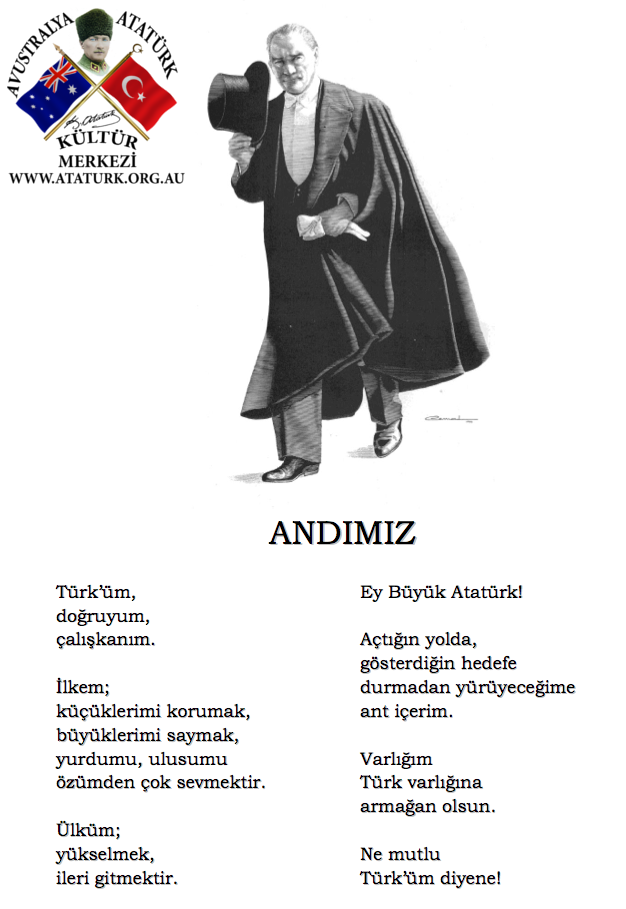
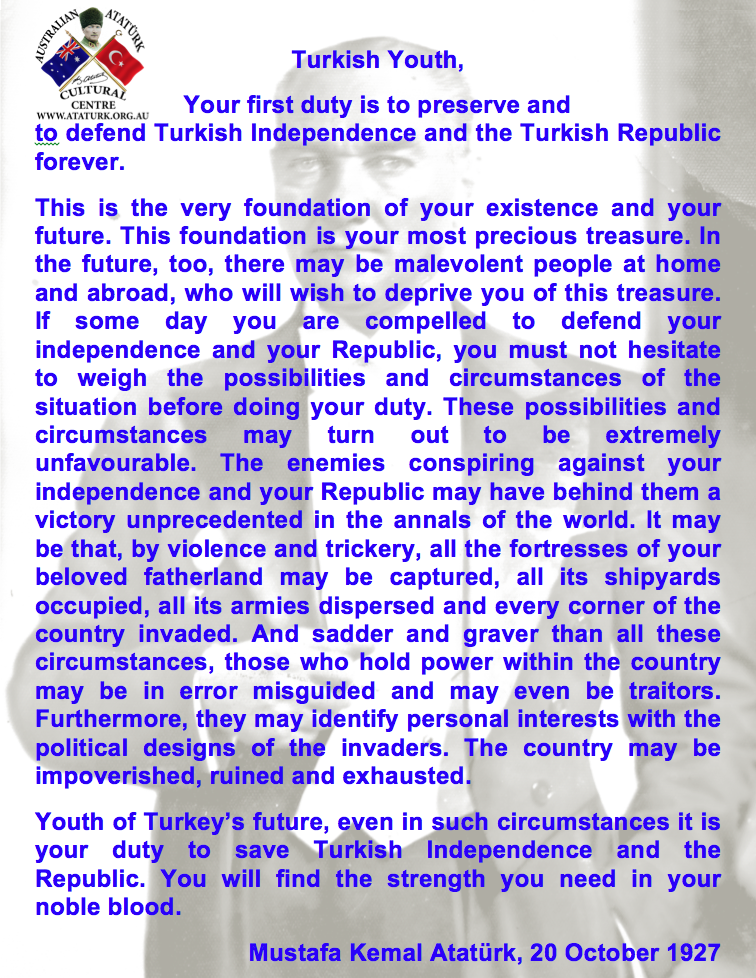
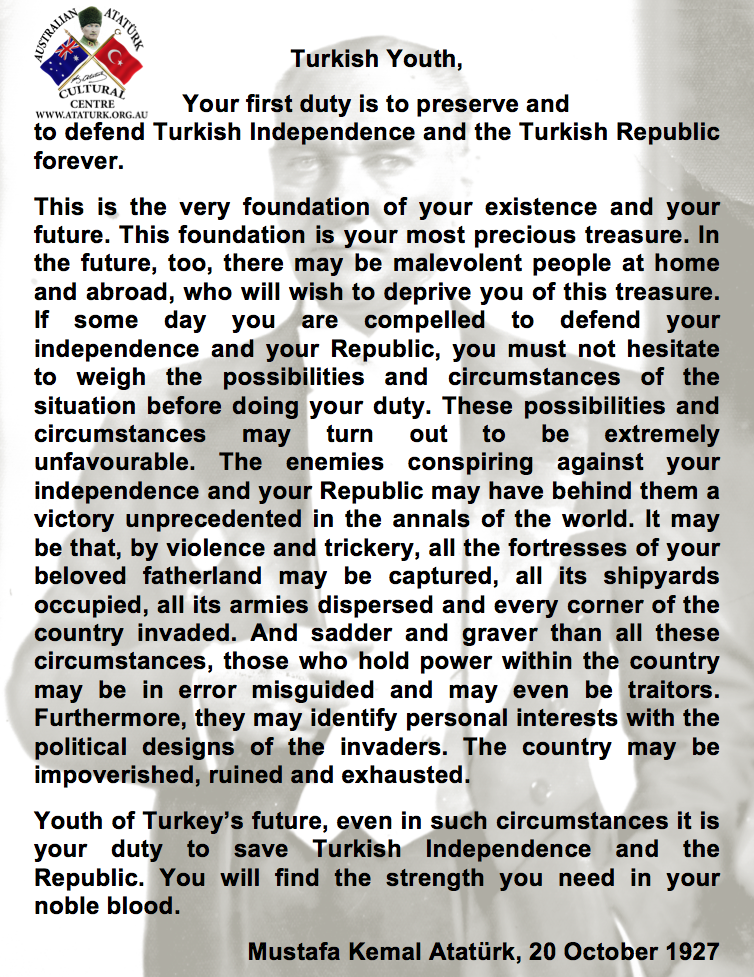
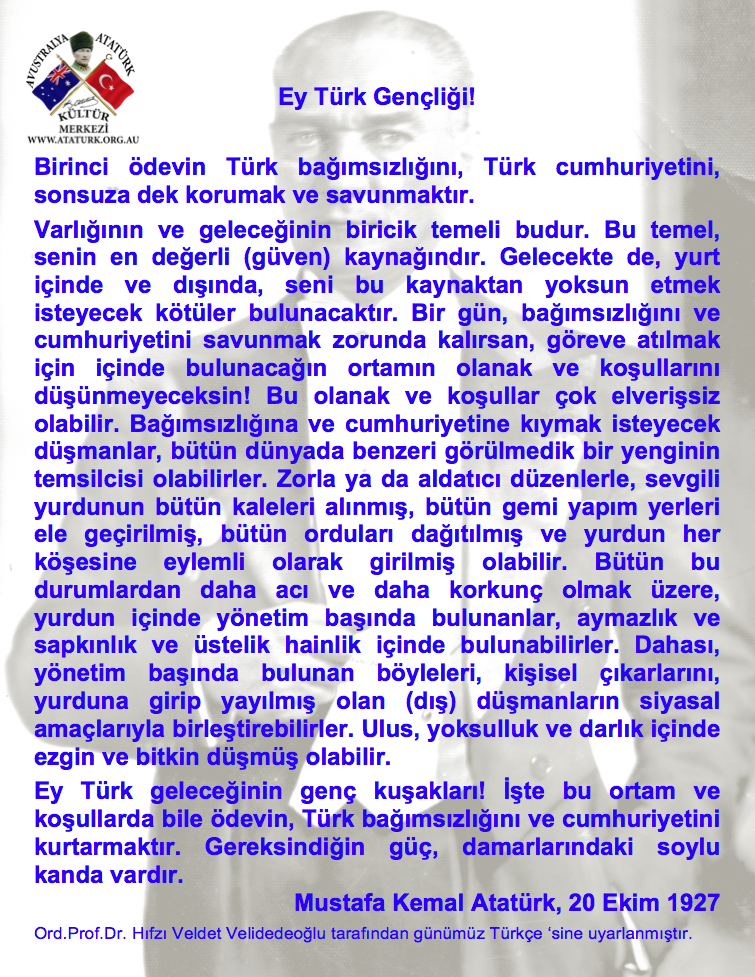

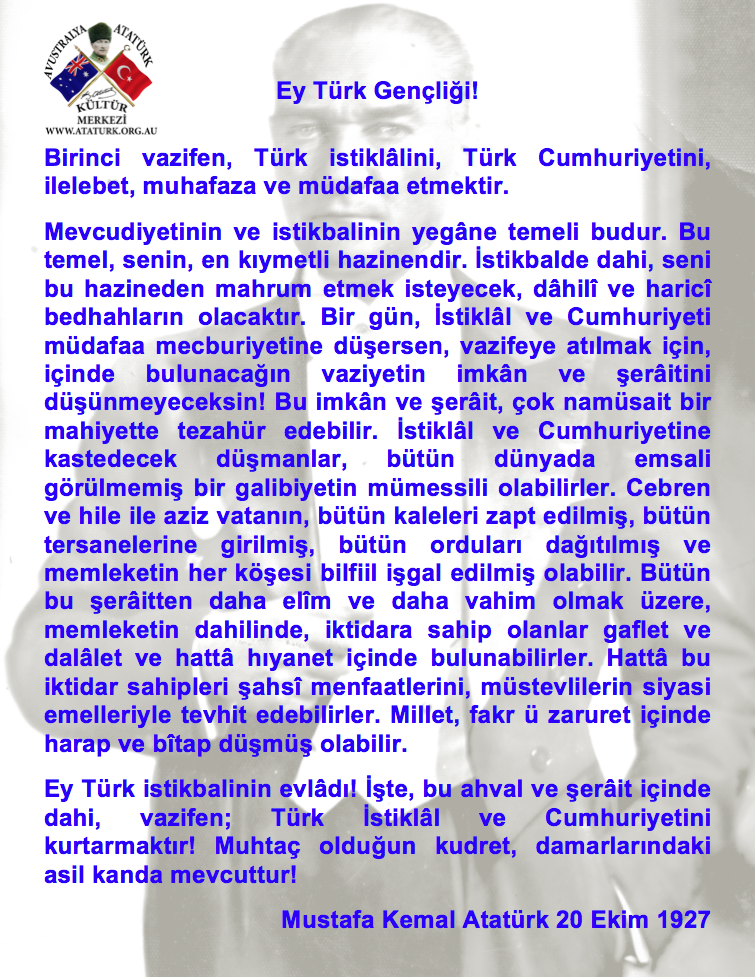

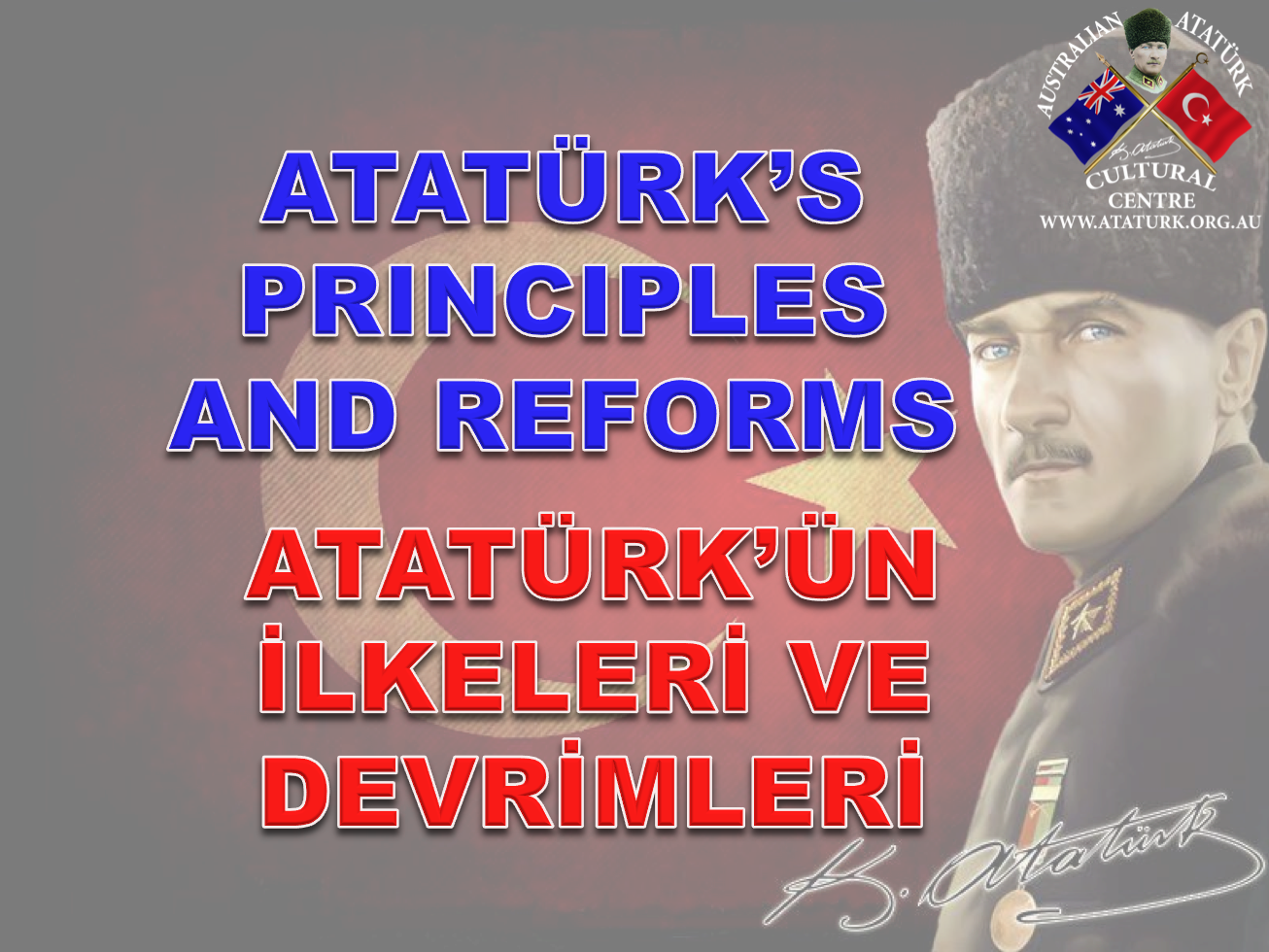
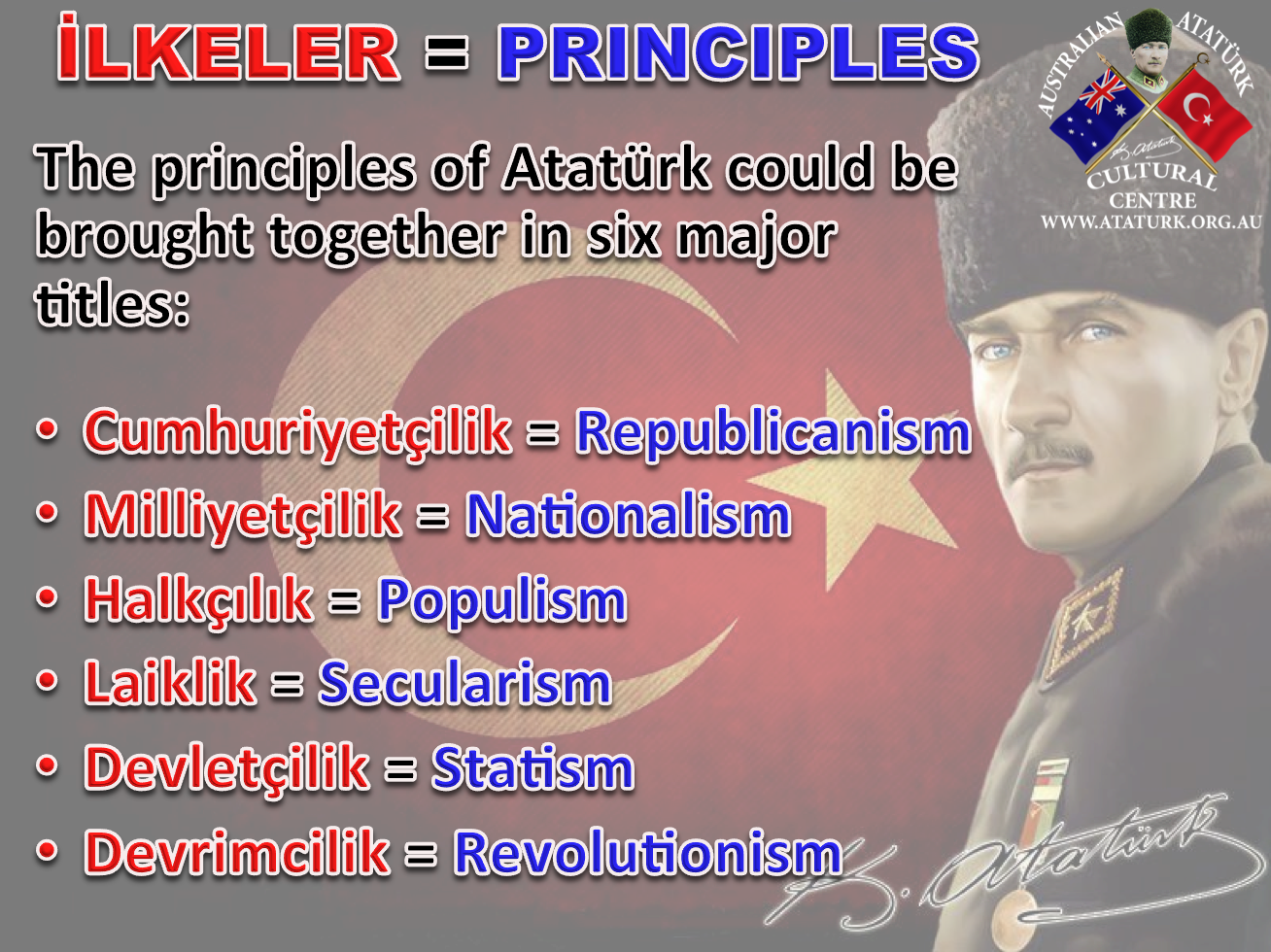
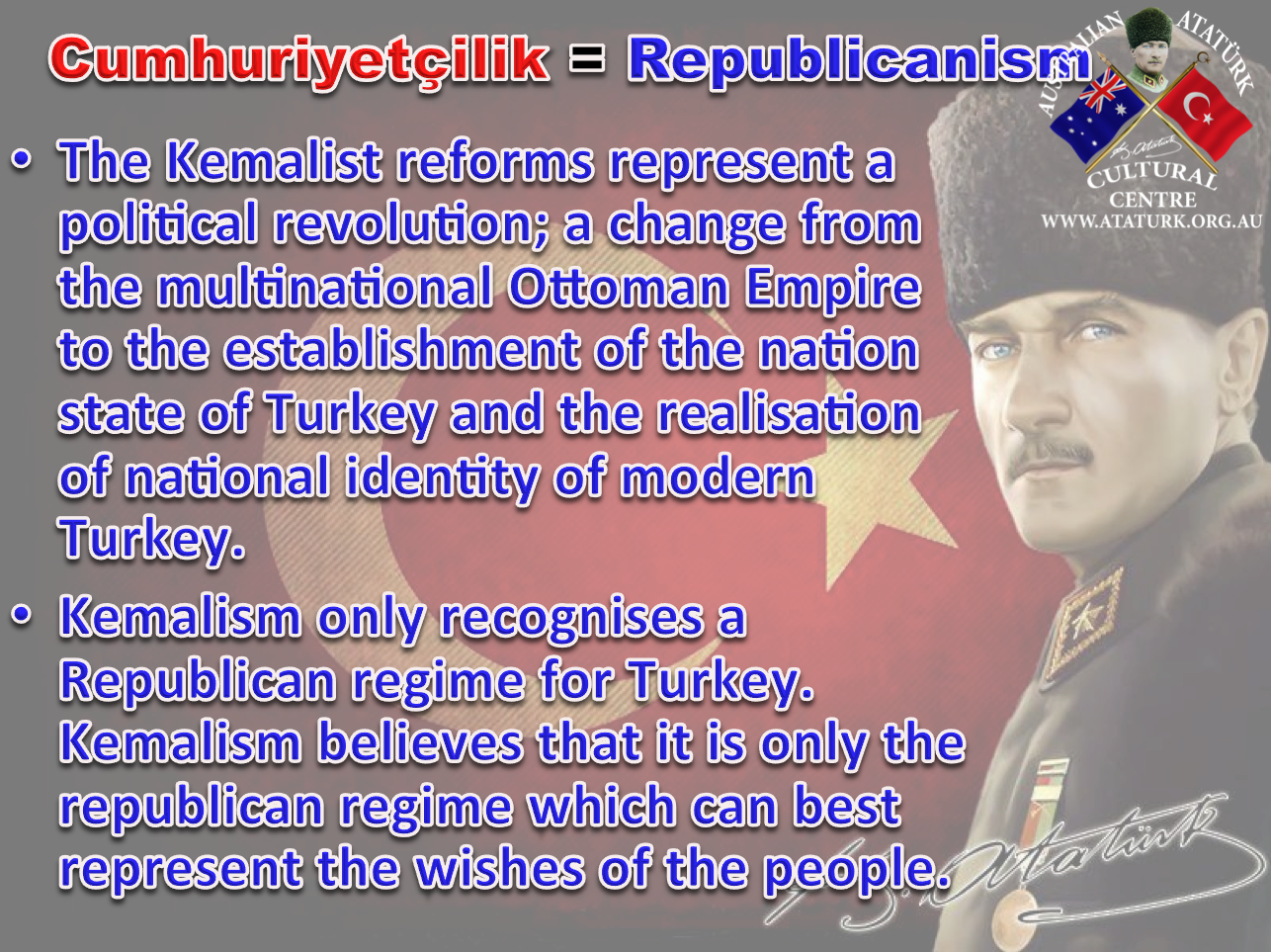

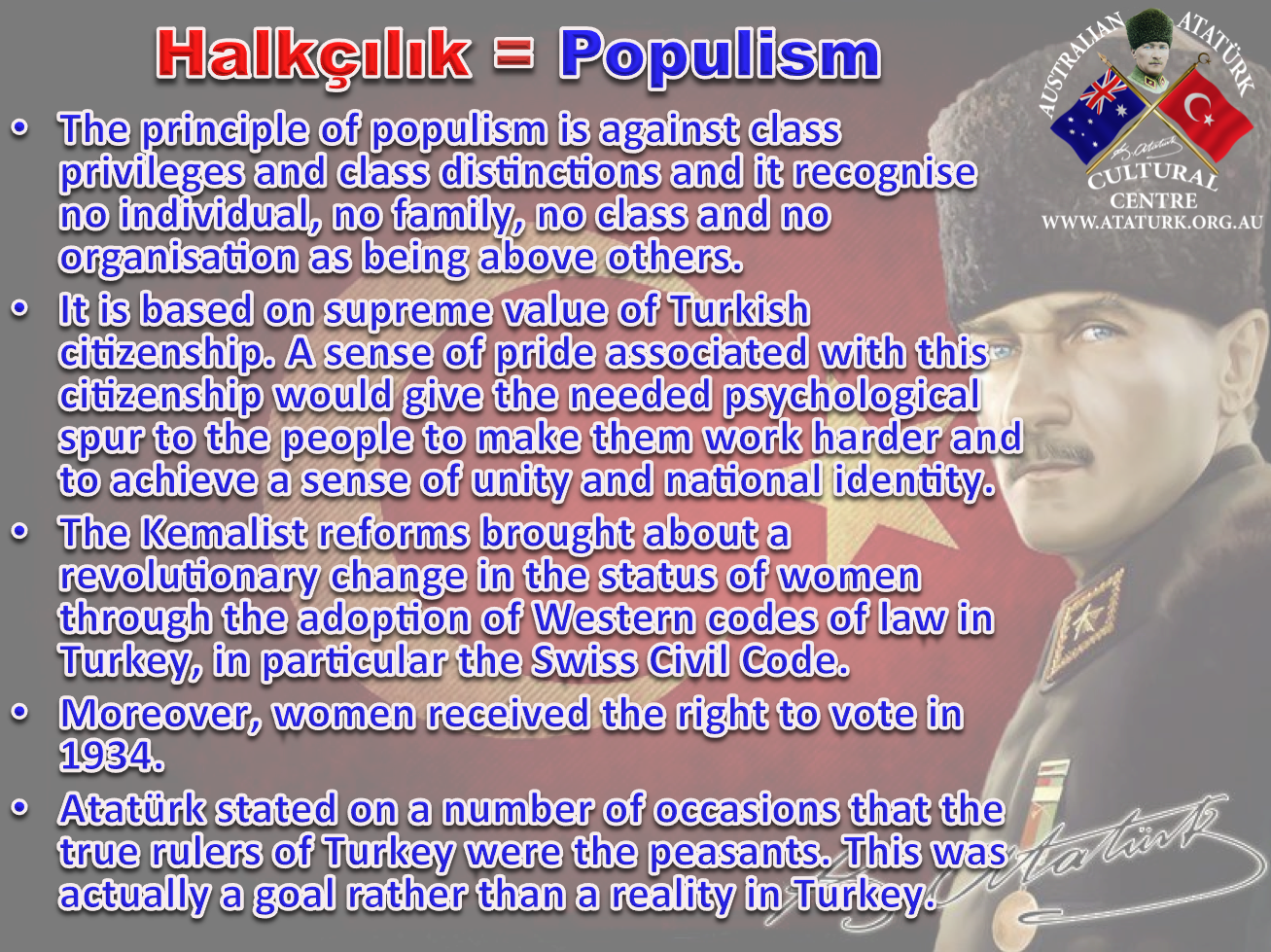
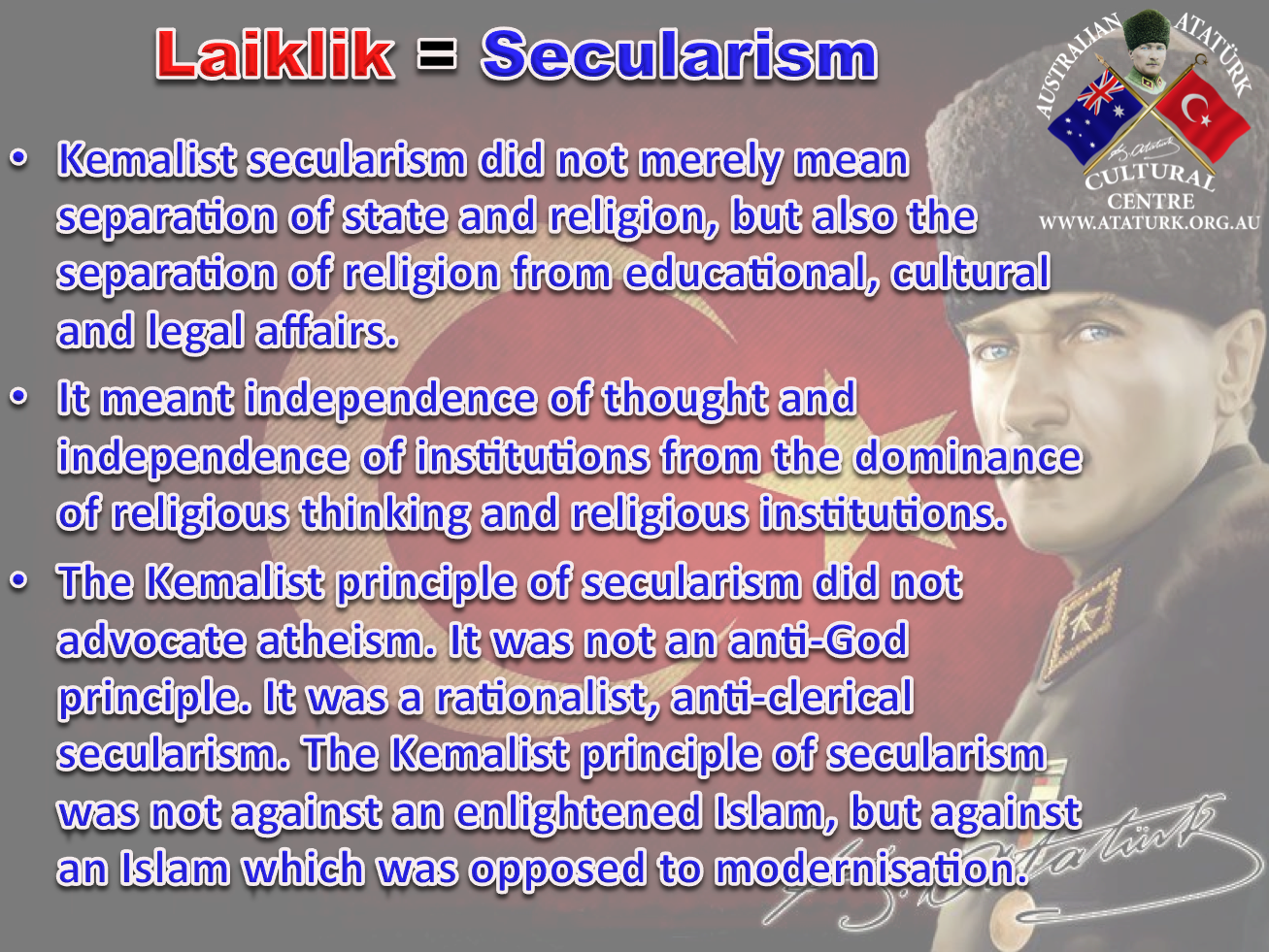
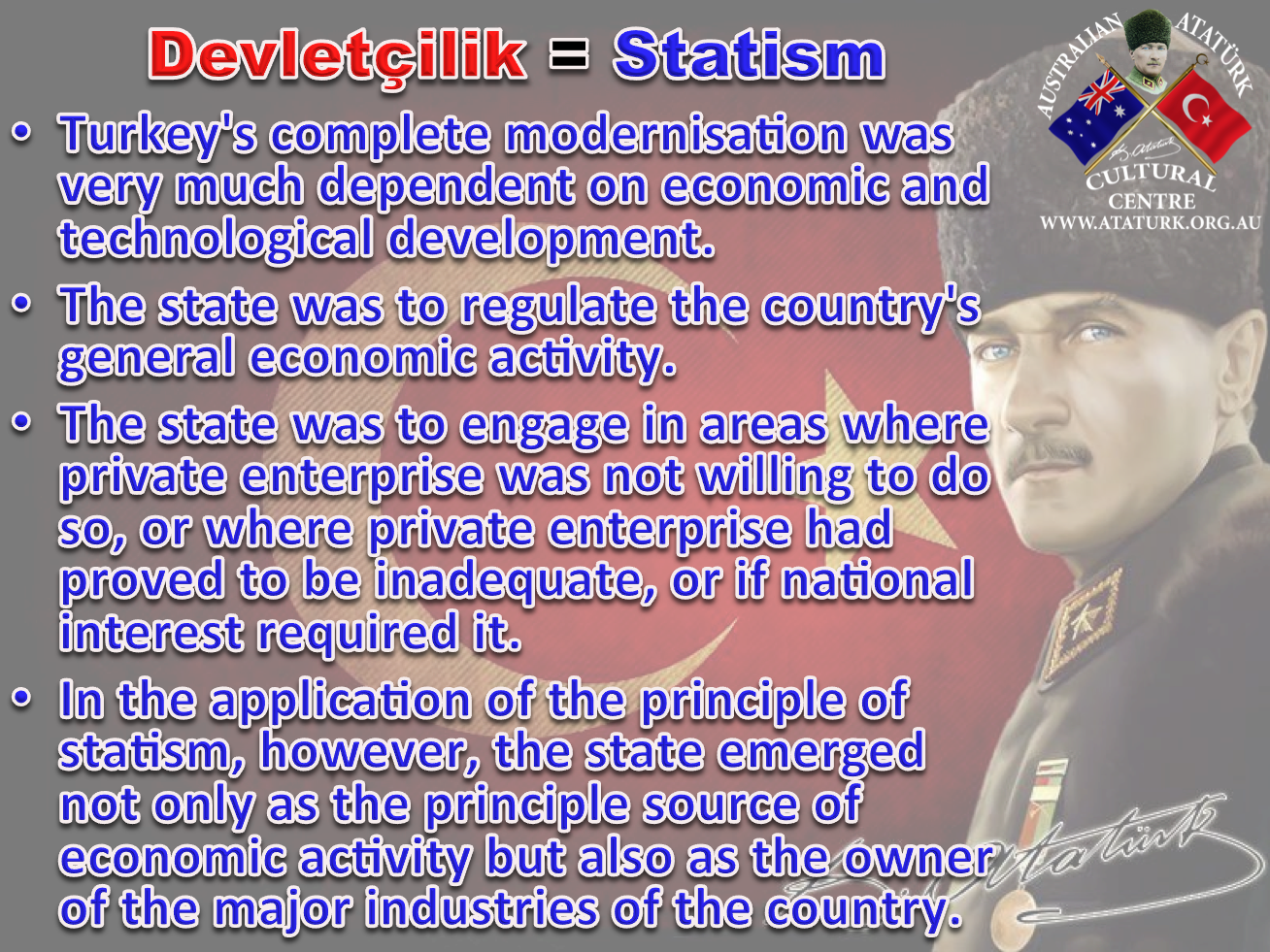

ATATÜRK’ÜN İLKELERİ VE DEVRİMLERİ
ATATÜRK’S PRINCIPLES AND REFORMS
The principles of Atatürk could be brought together in six major titles:
- Cumhuriyetçilik = Republicanism
- Milliyetçilik = Nationalism
- Halkçılık = Populism
- Laiklik = Secularism
- Devletçilik = Statism
- Devrimcilik = Revolutionism
Cumhuriyetçilik (Republicanism):
Atatürk devrimleri siyasi nitelik taşır. Çok uluslu bir İmparatorluktan ulus devlete geçiş gerçekleştirilmiş ve böylece modern Türkiye’nin ulusal kimliği oluşturulmuştur. Bu kimliğin oluşmasında, kul nitelikli insanların yurttaş-birey niteliği kazanması önemli bir noktadır. Atatürk bunun yolunu, kısaca halkın kendi kendisini idaresi, yani demokrasi demek olan Cumhuriyet’te görmüştür.
The Kemalist reforms represent a political revolution; a change from the multinational Empire to the establishment of the nation state of Turkey and the realization of national identity of modern Turkey. Kemalism only recognizes a Republican regime for Turkey. Kemalism believes that it is only the republican regime, which can best represent the wishes of the people.
Milliyetçilik (Nationalism):
Cumhuriyet devrimi ayrıca milliyetçi bir devrimdir. Bu milliyetçilik ırkçı bir yapıda değildir; yurtseverlikle sınırlıdır. Bu devrimin amacı, Türkiye Cumhuriyetinin bağımsızlığının korunması ve ayrıca Cumhuriyetin siyasal yönden gelişmesidir. Bu milliyetçilik, tüm diğer ulusların bağımsızlık haklarına saygılıdır; sosyal içeriklidir; yalnızca anti – emperyalist olmayıp, aynı zamanda gerek hanedan yönetimine, gerekse herhangi bir sınıfın Türk toplumunu yönetmesine de karşıdır ve nihayet bu milliyetçilik Türk devletinin vatanı ve halkı ile bölünmez bir bütün olduğu ilkesine inanmaktadır.
The Kemalist revolution was also a nationalist revolution. Kemalist nationalism was not racist and identified individuals based on citizenship. It was meant to preserve the independence of the Republic of Turkey and also to help the Republic’s political development. It was a nationalism which respected the right to independence of all other nations. It was nationalism with a social content. It was not only anti-imperialist, but it was also against the rule of a dynasty or of any particular social class over Turkish society. Kemalist nationalism believes in the principle that the Turkish state is an indivisible whole comprising its territory and people.
Halkçılık (Populism):
Gerek içeriği gerekse hedefleri açısından bakıldığında, Cumhuriyet Devrimi ayrıca bir sosyal devrim niteliği de taşır. Başta İsviçre Medeni Kanunu olmak üzere, Batı kanunlarının Türkiye’de uygulamaya konulmasıyla birlikte kadınların statüsünde köklü değişiklikler olmuş, 1934 yılında kabul edilen bir kanun ile kadınlar seçme ve seçilme hakkını almışlardır. Atatürk çeşitli ortamlarda, Türkiye’nin gerçek yöneticilerinin köylüler olduğunu söylemiştir. Aslında bu durum Türkiye için bir gerçek olmaktan çok bir hedef niteliğindedir. Halkçılık ilkesi sınıf ayrıcalıklarına ve sınıf farklılıklarına karşı olmak ve hiçbir bireyin, ailenin, sınıfın veya organizasyonun diğerlerinin daha üzerinde olmasını kabul etmemek demektir. Halkçılık, Türk vatandaşlığı olarak ifade edilen bir fikre dayanır. Gurur ile birleşen vatandaşlık fikri, halkın daha fazla çalışması için gerekli psikolojik teşviki sağlar, birlik fikrinin ve ulusal bir kimliğin kazanılmasına yardımcı olur.
The Kemalist revolution was also a social revolution in term of its content and goals. This was a revolution led by an elite with an orientation towards the people in general. The Kemalist reforms brought about a revolutionary change in the status of women through the adoption of Western codes of law in Turkey, in particular the Swiss Civil Code. Moreover, women received the right to vote in 1934. Atatürk stated on a number of occasions that the true rulers of Turkey were the peasants. This was actually a goal rather than a reality in Turkey. In fact, in the official explanation given to the principle of populism was stated that Kemalism was against class privileges and class distinctions and it recognized no individual, no family, no class and no organization as being above others. Kemalist ideology was, in fact, based on supreme value of Turkish citizenship. A sense of pride associated with this citizenship would give the needed psychological spur to the people to make them work harder and to achieve a sense of unity and national identity.
Laiklik ( Läicite – Secularism):
Laiklik yalnızca devlet ve dinin birbirinden ayrılması anlamına gelmez ayrıca eğitim, kültür ve yasama alanlarının da dinden bağımsız olması anlamını taşır. Laiklik, devletin dini düşünce ve dini kuruluşların etkisinden bağımsız olması, ve genel olarak düşünce özgürlüğü anlamına gelmektedir. Devrimlerin birçoğu laikliği gerçekleştirmek amacıyla yapılmış ve diğerleri ise laikliğe ulaşılmış olması sayesinde gerçekleştirilebilmiştir. Laiklik ilkesi akılcı ve dini siyasetin dışında tutan bir ilkedir. Osmanlı döneminde matbaanın geciktirilmesinde olduğu gibi dinin yenilikler karşısında nasıl tutucu bir silah haline geldiğini yaşamış olan Türkiye Cumhuriyeti kurucuları açısından dinin din dışı sivil yapı üzerinde yaratabileceği baskıları önlemenin bir aracıdır.
Kemalist läicism did not merely mean separation of state and religion, but also the separation of religion from educational, cultural and legal affairs. It meant independence of thought and independence of institutions from the dominance of religious thinking and religious institutions. Thus, the Kemalist revolution was also a secularist revolution in the strictest sense – via läicite. Many Kemalist reforms were made to bring about läicism, and others were realised because läicite had been achieved. The Kemalist principle of läicite did not advocate atheism. It was not an anti-God principle. It was a rationalist, anticlerical secularism. The Kemalist principle of läicite was not against an enlightened Islam, but against an Islam, which was opposed to modernization.
Devletçilik (Statism):
Mustafa Kemal Atatürk yapmış olduğu açıklamalarda ve politikalarında Türkiye’nin bir bütün olarak modernizasyonunun ekonomik ve teknolojik gelişmeye önemli ölçüde bağlı olduğunu ifade etmiştir. Bu bağlamda, devletçilik ilkesini de devletin, ülkenin genel ekonomik faaliyetlerinin düzenlenmesi ve özel sektörün girmek istemediği veya yetersiz kaldığı ya da ulusal çıkarların gerekli kıldığı alanlara girmesi anlamında yorumlamaktadır. Ancak, devletçilik ilkesinin uygulanmasında, devlet yalnızca ekonomik faaliyetlerin temel kaynağını teşkil etmemiş, aynı zamanda ülkenin büyük sanayi kuruluşlarının da sahibi olmuştur.
Kemal Atatürk made clear in his statements and policies that Turkey’s complete modernization was very much dependent on economic and technological development. The principle of statism was interpreted to mean that the state was to regulate the country’s general economic activity and that the state was to engage in areas where private enterprise was not willing to do so, or where private enterprise had proved to be inadequate, or if the national interest required it. In the application of the principle of statism, however, the state emerged not only as the principle source of economic activity but also as the owner of the major industries of the country.
Devrimcilik (Revolutionism):
Atatürk’ün ortaya koyduğu en önemli ilkelerden birisi de devrimciliktir. Bu ilkenin anlamı Türkiye’nin devrimler yaparak geleneksel kuruluşlarını modern kuruluşlarla değiştirmiş olmasıdır. Geleneksel kavramların bir kenara itilip modern kavramların benimsenmesi demektir. Devrimcilik ilkesi, yapılmış olan devrimlerin tanınıp kabul edilmelerinin çok ötesine geçmiştir.
One of the most important principles that Atatürk formulated was the principle of reformism or revolutionism. This principle meant that Turkey made reforms and that she replaced traditional institutions with modern institutions. It meant that traditional concepts were eliminated and modern concepts were adopted. The principle of reformism went beyond the recognition of the reforms, which were made.
